
Fostering Smart and Sustainable Travel through Engaged Communities using Integrated Multi-dimensional Information-Based Solutions
The project leverages information, communication, and sensor technologies (ICSTs) to collect data and translate them into intelligent, actionable information and targeted solution mechanisms to achieve community-level sustainability objectives (mobility, accessibility, safety, and equity). Developed solutions will enable societal benefits to be realized at their highest potential for various community stakeholder levels.
Project Objectives
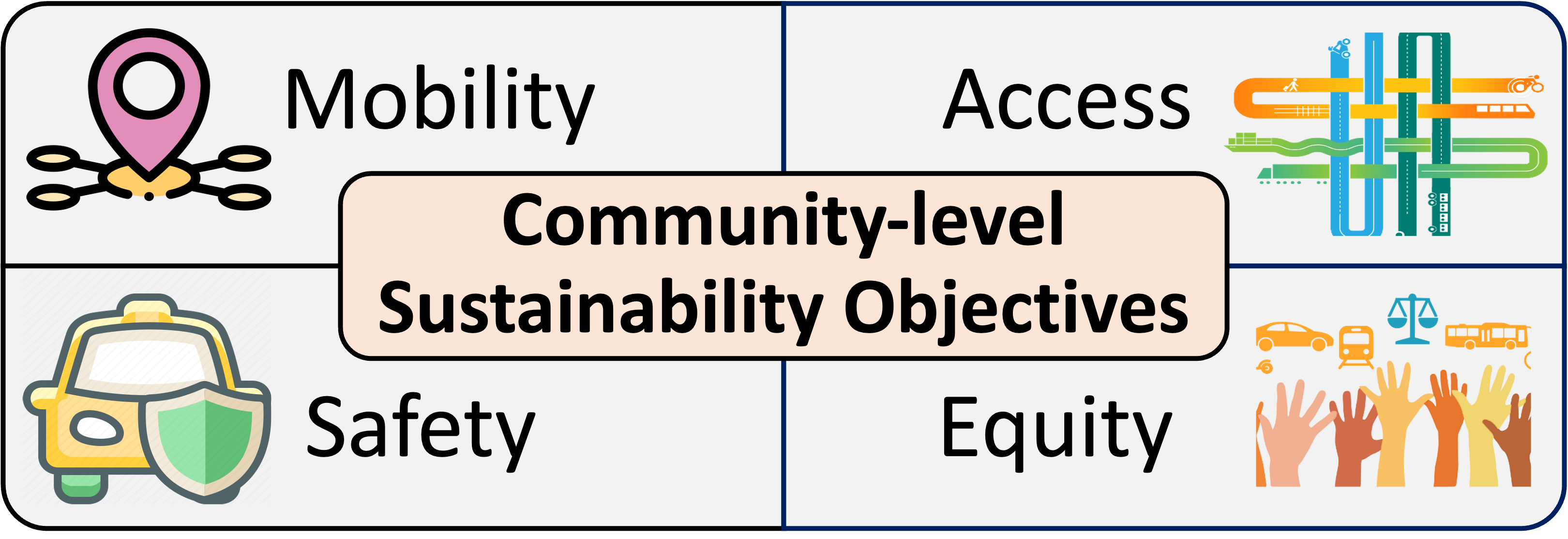
Develop tools to achieve sustainability objectives
- Systematic framework
- Associated models, methods, and solution algorithms
Generate multidimensional solutions
- Integrating solutions across social and technological dimensions
Explore control actions
- Behavioral interventions
- Public policy interventions
- Emerging mobility solutions
Methods
ML-based Data Processing and Analysis
Dynamic visualization platform:
- Machine learning (ML) algorithms are used
- Integrates different data sources
- Multidimensional data includes:
- Sociodemographic characteristics
- Travel speed (HERE API)
- Accidents & weather
- Transit demand & supply
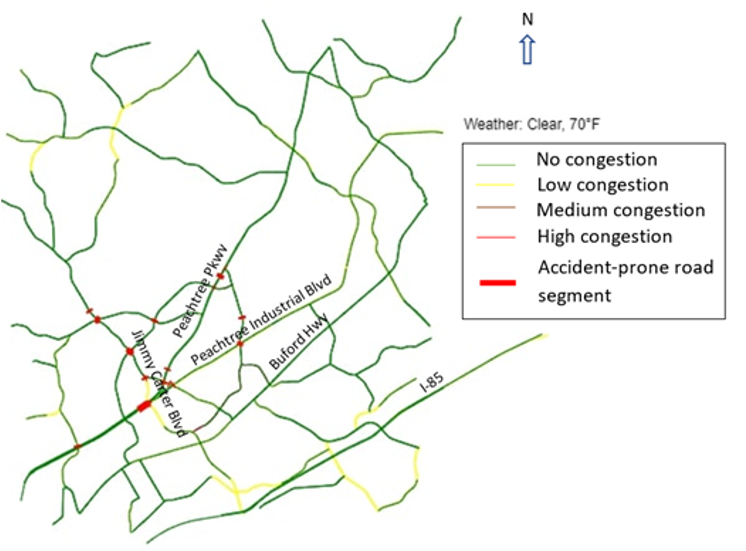

App and Survey-based Data Collection
The TranSACT mobile app is developed to collect location and behavioral data from PTC residents:
- Serves as a platform for delivering behavioral interventions
- Includes a survey to collect data on residents' travel habits and preferences
Behavioral Interventions
- Promoting travel behavior change at individual and community levels
- Employing concepts from behavioral psychology, including nudge theory, gamification, and positive reinforcement techniques.
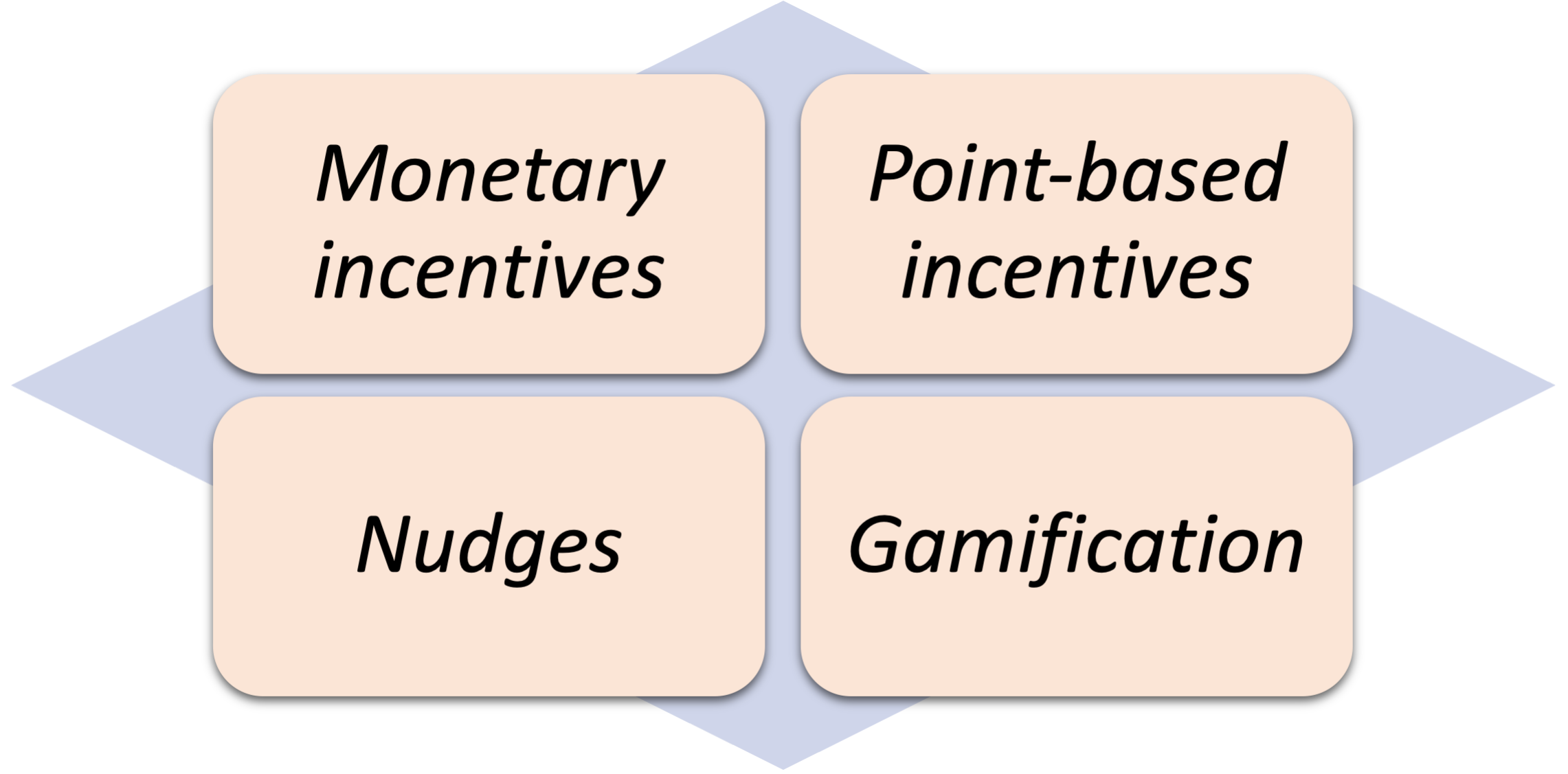

Public Policy Interventions
- Large-scale data collection, including PTC charging stations data
- Solutions aimed at promoting mobility solutions implementation and social equity
- Strategies include non-monetary information strategies
Multi-objective Optimization
- Dividing community into zones to assess zonal sustainability characteristics
- Spatial multi-objective equity-focused models to optimize sustainability objectives
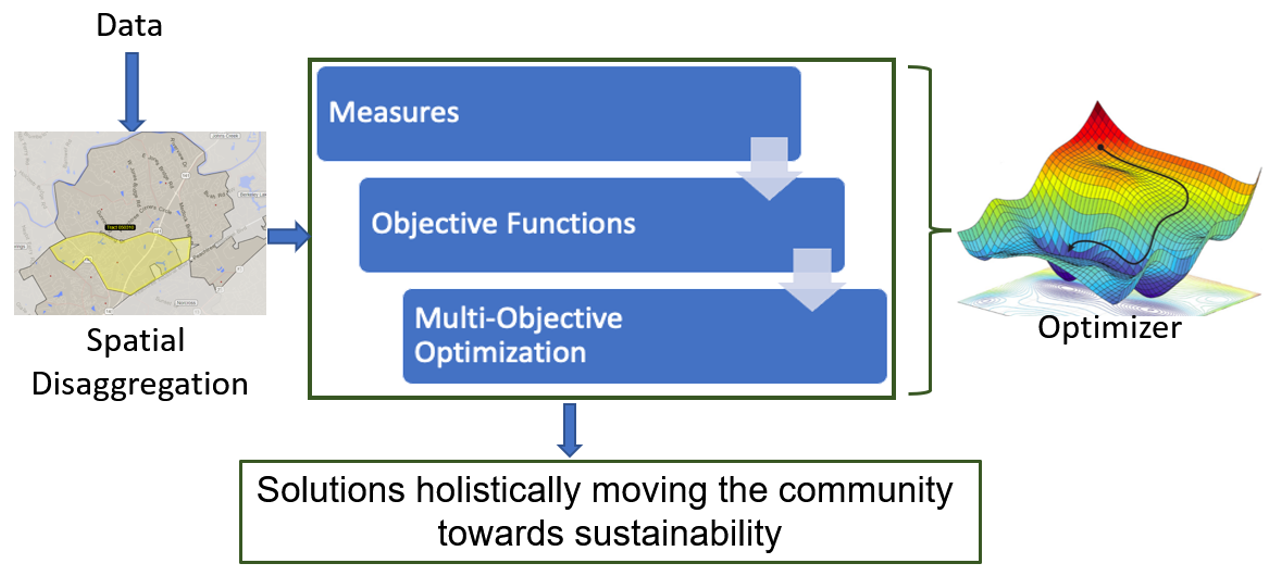
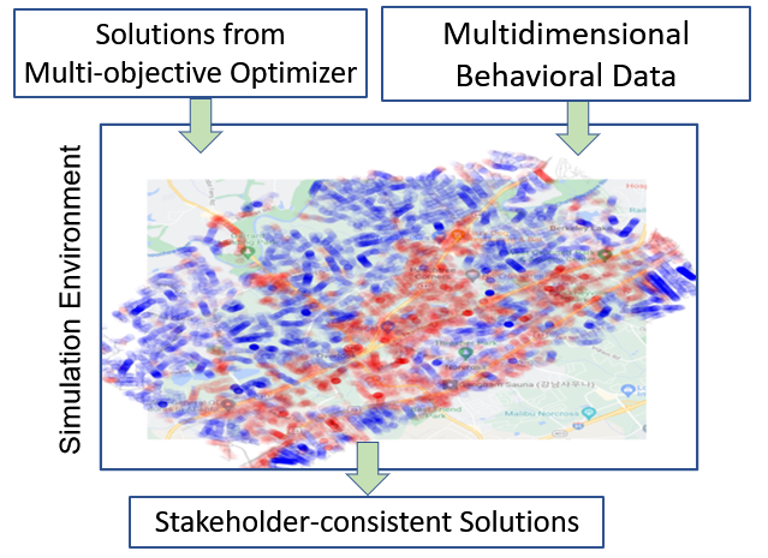
Multi-agent Simulation-based Optimization
Microscopic traffic simulation platform:
- Simulating community-wide traffic
- Capable of examining proposed behavioral interventions through simulations
- Generated stakeholder-consistent solutions
Public Private Partnerships
- Exploring partnerships between emerging (e.g., autonomous shuttle) and traditional (e.g., transit) mobility service providers
- Integrating planning and operations across partners for seamless service
- Addressing inequity by focusing on disadvantaged groups
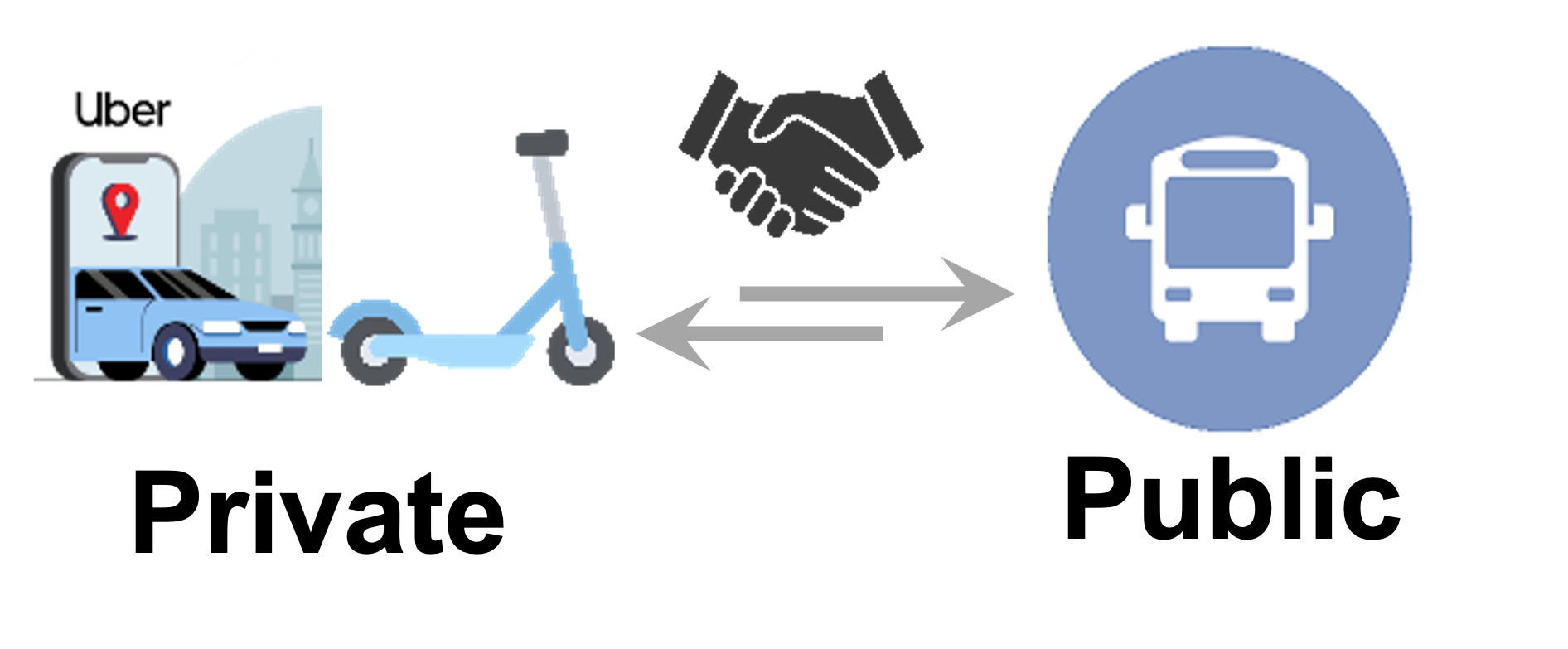
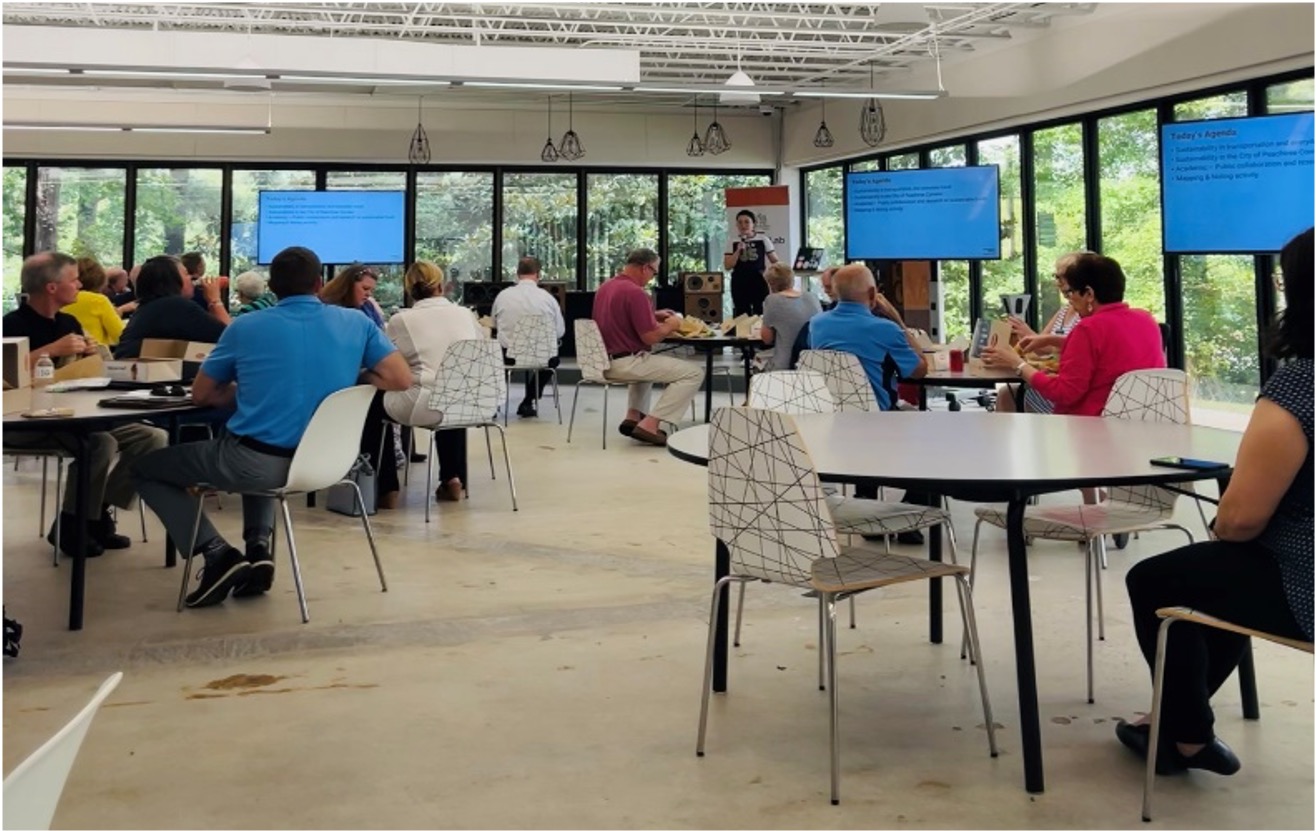
Community Engagement
- In-person workshops held at Curiosity Lab in collaboration with PTC governance engage the local community
- Workshops are aimed at disseminating information, raising awareness, and promoting sustainable travel behaviors
Metrics
Mobility
- System time
- System delay
- User travel time
- User delay
- VMT
- Travel rate on links
Access:
- Transit accessibility
- Employment accessibility
- Gravity-based impedance measures
- Utility-based measures
Safety
- Crash count
- Fatality count
- Severity of crashes
Equity
- Zonal transit access
- Zonal user travel time
Novelty
- Multidimensional solutions leveraging ICSTs, emerging transportation technologies, multimodal transportation, and community-level data
- Decision-making tools based on multi-agent simulation-based optimization techniques with available efficient solution algorithms
- PTC, GA, leveraged as a living lab, to promote evidence-based guidance for other communities
Intellectual Merit
This project will advance theory and deployment paradigms associated with holistic, community-level decision-making. It will generate methods integrating disparate, multi-source data and use it to systematically generate multidimensional solution options to meet multiple sustainability objectives in a systematic, quantifiable manner over time.
Broader Impacts
- Addressing inequities in S&CCs by providing them systematic deployment tools, and with quantifiable outcomes
- Overcoming information deserts in lower-income neighborhoods, technology savviness issues for senior residents, and reduced access to smartphones and transportation options
- A new community app for PTC users for travel options and feedback
- K-12 initiatives, including engagement roles for a local STEM high school
- Engaging Georgia Tech students in research via VIP course and NSF REU
